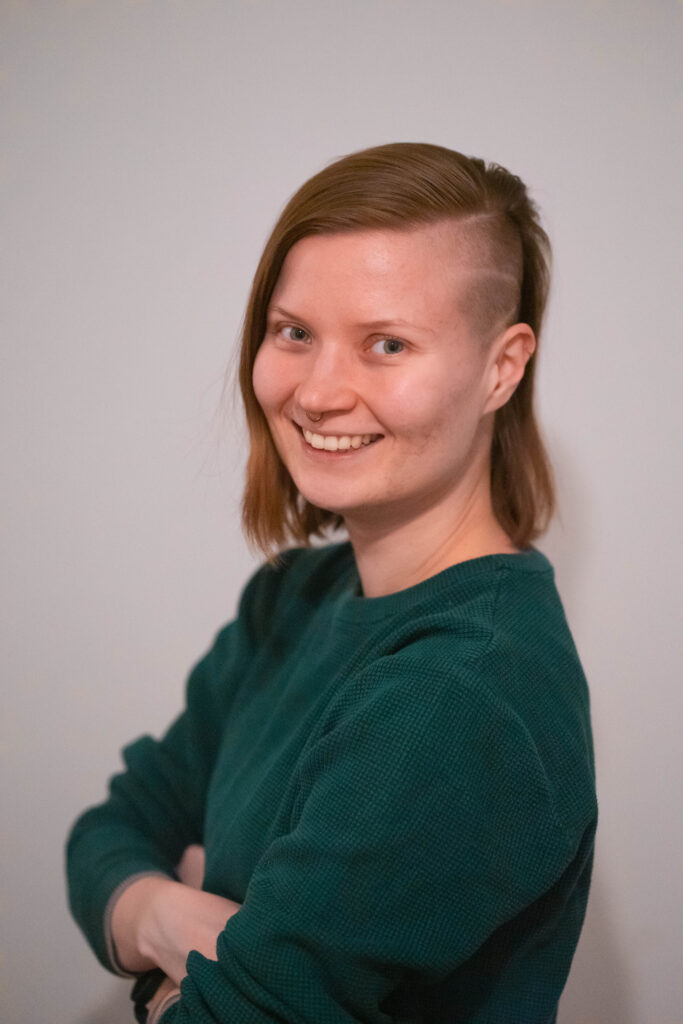I am a great R enthusiast. Every year, I bake my favourite programming language a cake for my "R-nniversary" (2018). I'm proficient in data wrangling, data visualisation, statistical analyses (mostly frequentist tools, e.g. mixed models), statistical simulations and reprodicuble manuscripts in R Markdown/Quarto.
I look forward to the Advent of Code every year - check out my GitHub repo for 2023!
I have run several online studies which we hosted on our own server. This means I'm experienced with setting up web experiments (using JavaScript, with the help of jsPsych), including managing the backend (PHP, SQL). The studies were also containerised using Docker.
My daily work includes version control with Git (I wouldn't say I'm an expert, but I don't start to cry when a merge conflict occurs). If I have to, I can also handle a little bit of Matlab, usually for fMRI analyses. My initial plan to become a graphic designer during school manifests itself in some decent image manipulation and drawing skills.
In 2017, I got the Felasa B certificate which covered laboratory procedures on rats, mice, rabbits, cats and dogs. I have excessive experience in handling and training rats and mice and assisted in stereotaxic surgeries in rats.
German (native speaker), English (C2)
The research group Psychology and Neurobiology of Sleep and Memory headed by Dr Gordon Feld is part of the department of Clinical Psychology at the Central Institute of Mental Health, Mannheim.
I mainly investigate how reward influences our memory (and its neurological underpinnings). I also research the influence on sleep on memory.
I mainly collected data in experiments with rodents. That involved delayed discounting paradigms, where rats had to choose between two outcomes that were delivered at different timepoints. Another large project was the social maze, were rats could make a choice between getting a reward for themselves or for themselves and another rat. Lastly, the conformity paradigm dealed with whether rats passed on their food preferences to other rats.
I assisted two PhD students who tested neurocognitive processes in rodent touchscreen boxes. I worked with mice to investigate the influence of fluoxetine in a range of (motivational) cognitive tasks like the progressive ratio task. In rats, I was involved in a project about sustained attention, where we developed a distraction probe for the continuous performance task. In another project, we examined hippocampal neurogenesis in spatial pattern separation.
In a short internship as part of my Bachelor's degree, I tested rats in delay discounting tasks.
Grade: 1.19
Master's thesis: Keep Calm and Discuss: The Reception of Different Styles of Discourse in a Scientific Debate [paper]
Grade: 1.80
Bachelor's thesis: Investigating Choice Behaviour in Rats Opting Between Immediate and Delayed Aversive Options
Open Science principles are an important aspect of my everyday work. My studies are usually preregistered, and I publish data and analysis code with my manuscripts. Check out my publication page for examples!
I am a member of the Open Science Office at the CIMH, Mannheim, where we try to increase all activities related to reproducible and transparent research at the CIMH. E.g., by organising talks and workshops, building infrastructure, or working on institutional policies. I am also part of the organising team behind the Mannheim Open Science meetup, a grassroot initiative where we organise talks and social gatherings for people interested in Open Science. I am also organising the Mannheim ReproducibiliTea, an open science journal club.
Since 2021, the DGPs and DGPA give out awards to young scientists for outstanding science communication. Not only researchers who are already strong communicators are supported; planned communication concepts can also be handed in.
Research does not belong in an ivory tower. I love to spread the word about science, be it in the form of science slams or as a former team member of "psychologeek", a German science YouTube channel.
